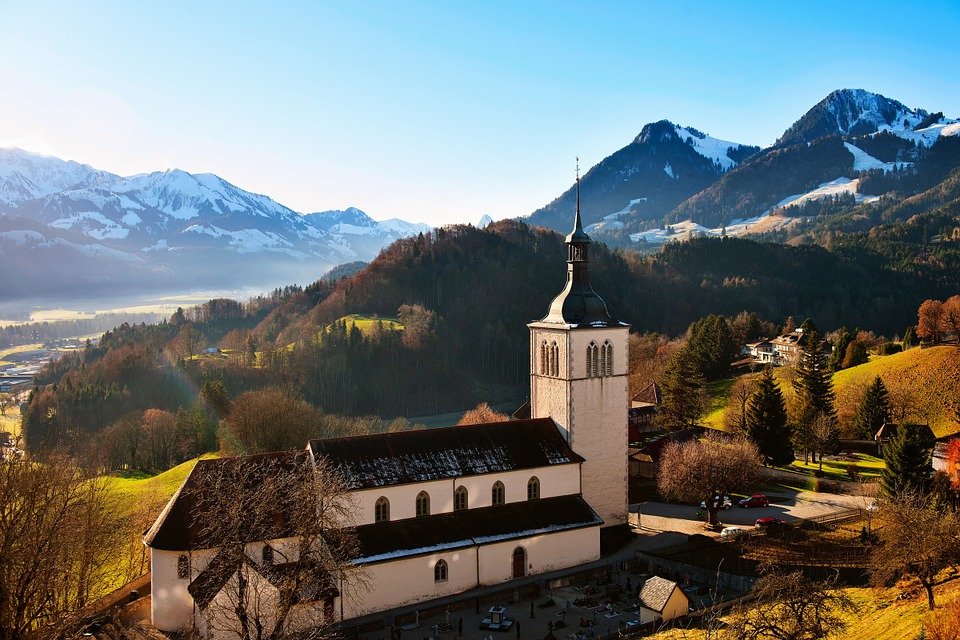Swiss Neutrality in WWII: A Hard-Fought, Hard-Won Privilege
The neutrality of Switzerland is a truly well-earned position. It has taken centuries of invasive war and political maneuvering to help develop the solid foundation of national fortitude that defines the present character of the land-locked country. From its earliest origins, back during the Gallic wars, Switzerland was a nation of besieged people by outside invaders. From the politically-ambitious, Julius Caesar to the war-mongering, Napoleon Bonaparte and master-manipulator, Adolph Hitler, Switzerland has had its fair share of trepidation (Rickard, 2009). Today’s Switzerland is able to maintain its neutrality as a result of a combination of factors that have, ultimately, helped the country survive European conflicts through the centuries. Through geopolitical maneuvering, military might that is directly tied to its national ideology and international banking, Switzerland was able to traverse the tides of WWII and remain neutral, as its neighbors fought bitterly.
The key factors that contribute to the main reasons why Switzerland had to obtain neutrality in order to maintain national fortitude include its geographical location in Europe, the ethnicity of its population and its diminutive land area (Jones, 2015). Because of these key factors, Switzerland is seen as a strategic, military gateway in the eyes of other European countries and the world at-large. During the Napoleonic Wars, the country was routed by French troops and its population and Cantons were separated and conquered. However, Napoleon, who worked toward Switzerland’s subjugation, later restored order in 1803 (Jones, 2015). After his defeat, in 1815, the Congress of Vienna convened to develop Europe’s international and industrial relations and strategically deemed Switzerland a neutral country (Jones, 2015). Switzerland joined the League of Nations in 1920 and was charged to serve other warring nations within that organization. Once the country’s duties were fulfilled, they regained the neutral status well into the 1930’s and WWII. Consequently, Switzerland was able to maintain neutrality in both WWI and WWII.
Because of the numerous military routings that Switzerland endured over many centuries, the country has taken advantage of every opportunity to militarily gird itself against outside invaders. The country has a long military tradition steeped within an ethos of national independence. In order to maintain neutrality, the Swiss highly-regard a national pastime of the right to bear arms and military astuteness. The spirit of independence within the Swiss citizen and having the means to back it up is no more evident than in the celebration of its most highly-esteemed holiday, the Tiro Federale Campagna (NoLongeraTheory, 2012, 1:18-1:45). The family-oriented festival kicks-off annually and is considered the largest shooting festival in the world.
It is organized by the Swiss government with the solitary purpose of encouraging an atmosphere of “readiness” in times of war. Hitler’s “SS” found out, during WWII, how difficult it was to defeat the Swiss Guard. As a result, his Operation Tannenbaum, meant to invade and conquer Switzerland, was a complete failure and the dreadful “SS” was beaten. The attempt to invade was done after Hitler vowed to the Swiss that he would honor their neutrality. He lied.
Swiss membership in the League of Nations, later to become the United Nations, has afforded the people of this land to amicably negotiate their country into neutrality and become indispensable to its European neighbors in various ways. The most obvious are military replenishment, war funding and international banking. These key factors allow the Swiss to exist in a “win-win” situation by appeasing all sides, in some way, while at the same time, profiting from these interactions. Very few countries are apt to bite the highly-lucrative hand that feeds them and invade a well-fortified country that stores its wealth and treasures.
Switzerland’s fierce determination to maintain independence is the driving force behind their neutrality in the world. Historically, the Swiss have endured division and subjugation by some of the world’s best military leaders. Because of their geography, they were the land-trapped, multi-ethnic peoples who found themselves in an enviable position to become free and independent through neutrality. Neutrality, in turn, has afforded them the opportunity to build and fortify national pride and develop an ethos of maintaining that hard-won freedom by any means necessary.
Works Cited
D. Venus. “Why is Switzerland Regarded as a Neutral Country?” (Last modified 10/13/2015).Copyright 2003-2015 Conjecture Corporation.Retrieved from http://www.wisegeek.org/why-is-switzerland-regarded-as-a-neutral-country.htm
NoLongeraTheory. (Uploaded 1/5/2012). “Why No One Invades Switzerland and the Right to Keep and Bear Arms.” [Video File]. Retrieved from https://www.youtube.com/watch?v=qaACLxAxCa0.
Rickard, J.“Gallic War: 58-51 B.C.” (3/25/2009). Retrieved from http://www.historyofwar.org/articles/wars_gallic.html
